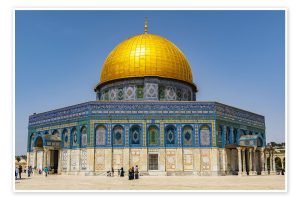Region anger was growing tonight after Saudi Arabia announced the execution of 47 prisoners accused of terrorism charges, including a Muslim Shi’ite cleric
RIYADH: Saudi Arabia executed 47 people on Saturday for terrorism, mostly suspected Al-Qaeda members, Saudi Interior Ministry said on Saturday.
The Ministry statement, published on the official SPA news agency, said the 47 had been convicted of adopting the radical “takfiri” ideology, joining “terrorist organizations” and implementing various “criminal plots.”
Most of those executed were involved in a series of attacks carried out by al-Qaeda from 2003-06 that killed Saudis and foreigners in the kingdom, the Interior Ministry statement added.
45 of those executed were of Saudi nationality, alongside one Chadian and one Egyptian, according to a list of names and nationalities published by the Saudi Press Agency. The 47 men were based across 12 regions in the Kingdom, the Interior Ministry statement added.
The brother of Sheikh al-Nimr says he is shocked by the move. Mohammed al-Nimr said “there will be reactions” but urged people to “adopt peaceful means when expressing their anger”.
The cleric’s name was among a list of the 47 carried by the state-run Saudi Press Agency.
Sheik al-Nimr had been a vocal critic of the government of the tiny island nation of Bahrain, where a Sunni-led monarchy harshly suppressed the 2011 Shi’ite-led protests. Saudi Arabia sent troops to help Bahrain suppress the uprising, fearing it would spread.
Iran strongly condemns Nimr execution
Iran strongly condemns Saudi Arabia’s execution of prominent Shia cleric Sheikh Nimr al-Nimr
Iranian foreign ministry spokesman Hossein Jaber Ansari said tonight Saudi Arabia would pay “a high price” for executing Sheik al-Nimr. Iran is predominantly a Shi’ite nation.
“The Saudi government supports terrorist movements and extremists, but confronts domestic critics with oppression and execution … the Saudi government will pay a high price for following these policies,” Mr Ansari said, quoted by the official IRNA news agency.
The execution of Sheik al-Nimr, “who had no means other than speech to pursue his political and religious objectives, only shows the depth of imprudence and irresponsibility”, he said.
Outrage in Iraq over Saudi executions
The execution in Saudi Arabia of the prominent Shi’ite cleric sparked outrage in Iraq, where some leaders called for the closure of Riyadh’s newly reopened embassy in Baghdad.
Nimr al-Nimr was a driving force of the protests that broke out in 2011 in the Sunni-ruled kingdom’s east.
Khalaf Abdelsamad, who heads the parliamentary bloc of Iraq’s Shi’ite Dawa party — to which both Prime Minister Haider al-Abadi and his predecessor Nuri al-Maliki belong — said Baghdad should take action.
“(Mr) Abdelsamad urges the Iraqi government to close down the Saudi embassy, expel the ambassador and execute all Saudi terrorists in Iraqi prisons,” a statement from his office said.




